Honeyguide School Leader Support
Safeguarding Training Pack - Spring Term
Safeguarding Training Pack - Spring Term
Want to implement or enhance your safeguarding training offer? This versatile pack allows you to pick and choose from scenarios and quiz questions to keep training fresh, as well as delivering safeguarding snapshots - one-page, one-minute guides to specific safeguarding issues that can be sent to staff or displayed. Better yet, it has a ready-made training timetable that incorporates all the resources - perfect if you’re starting safeguarding training from scratch!
Want to know what's inside the pack? View a preview version of the guidance and accompanying templates!
- Buy what you need when you need it
- No costly subscription required
- Instant download
Couldn't load pickup availability
Share
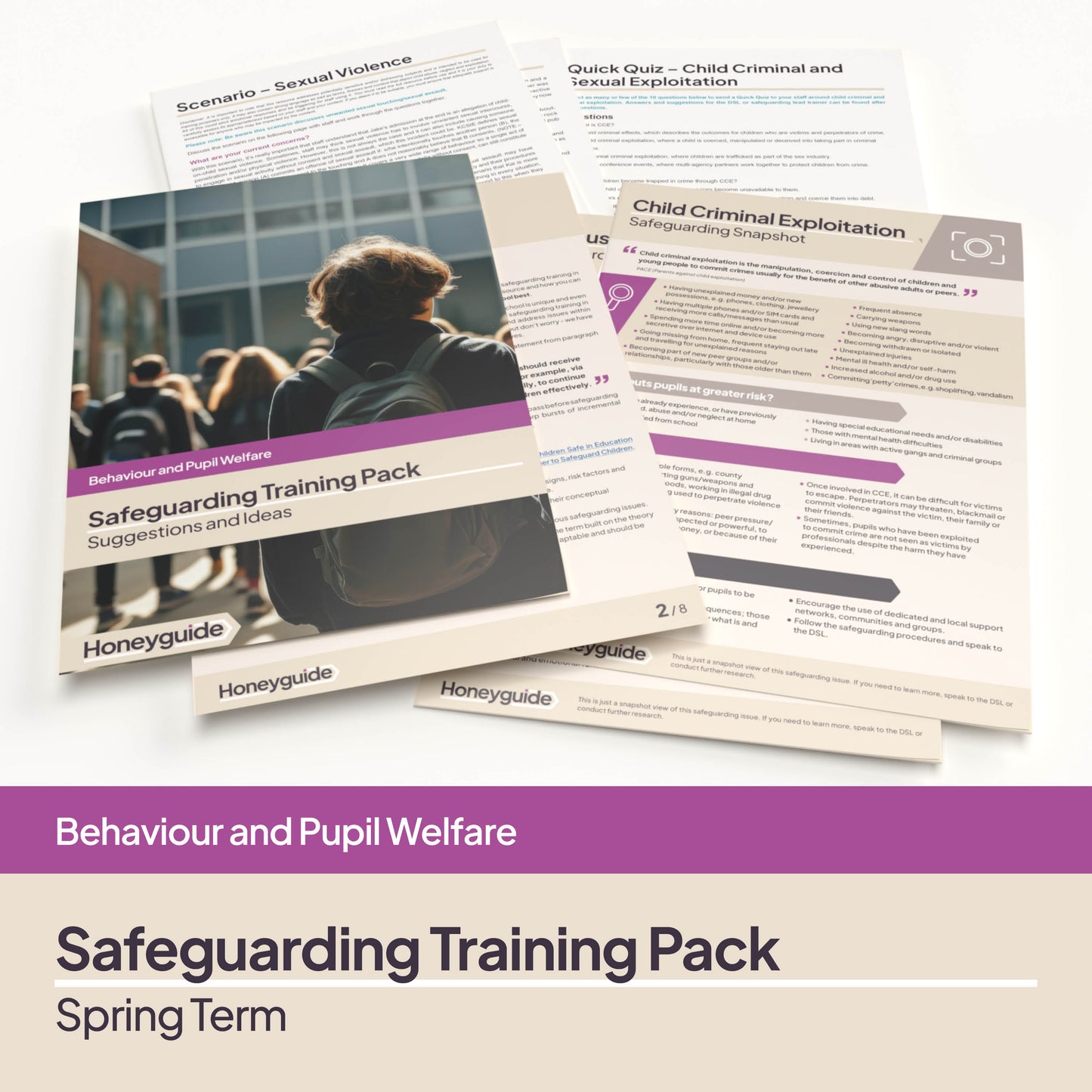
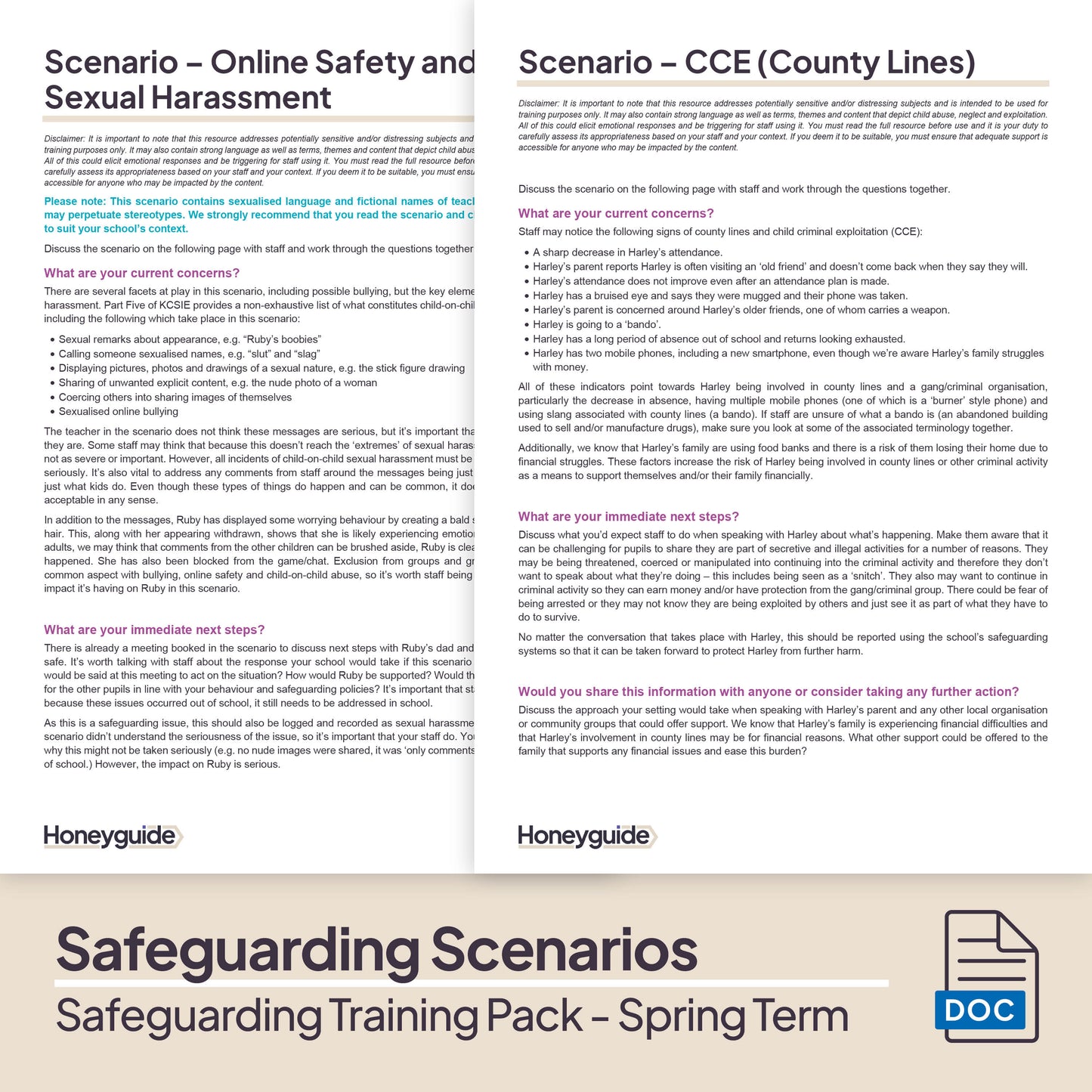
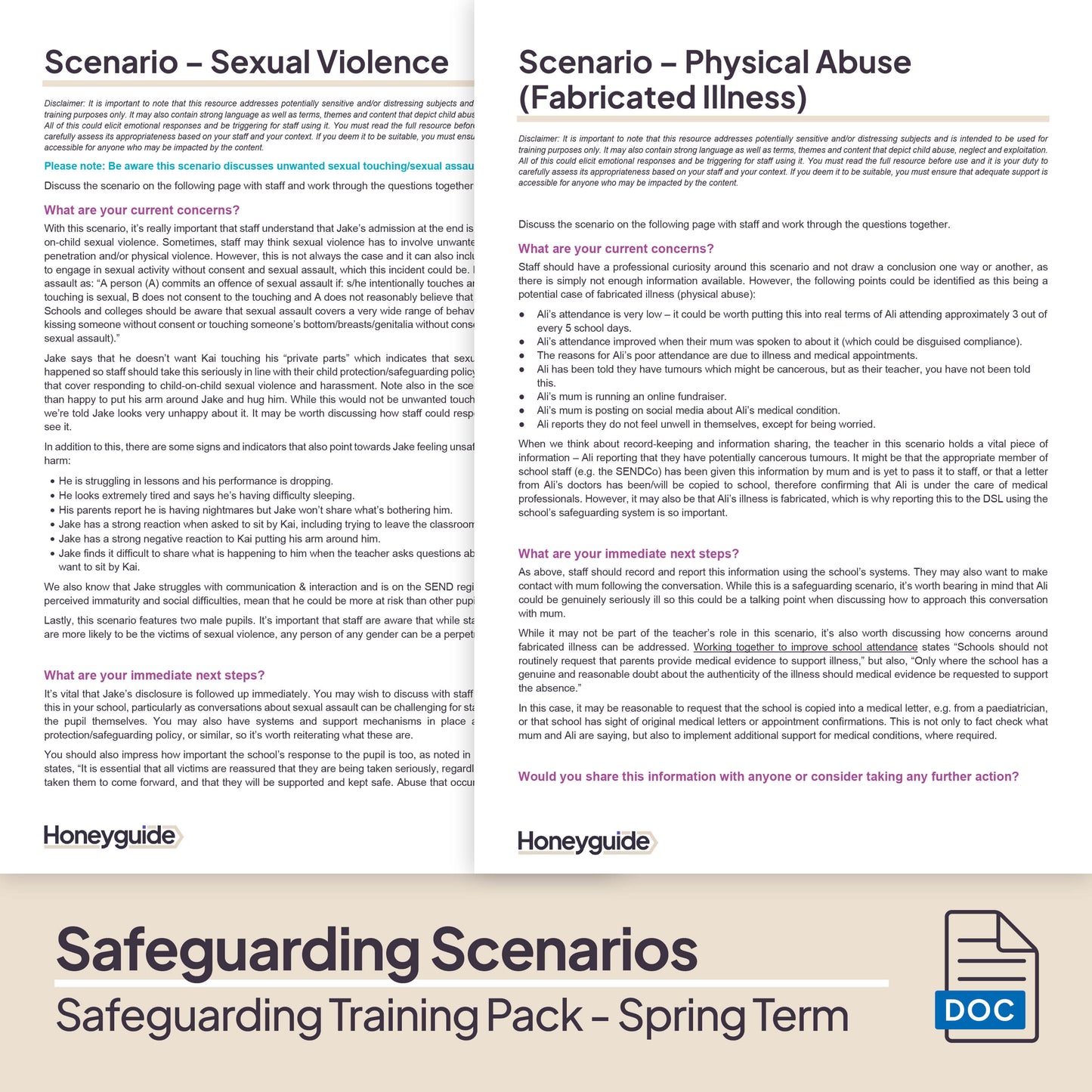
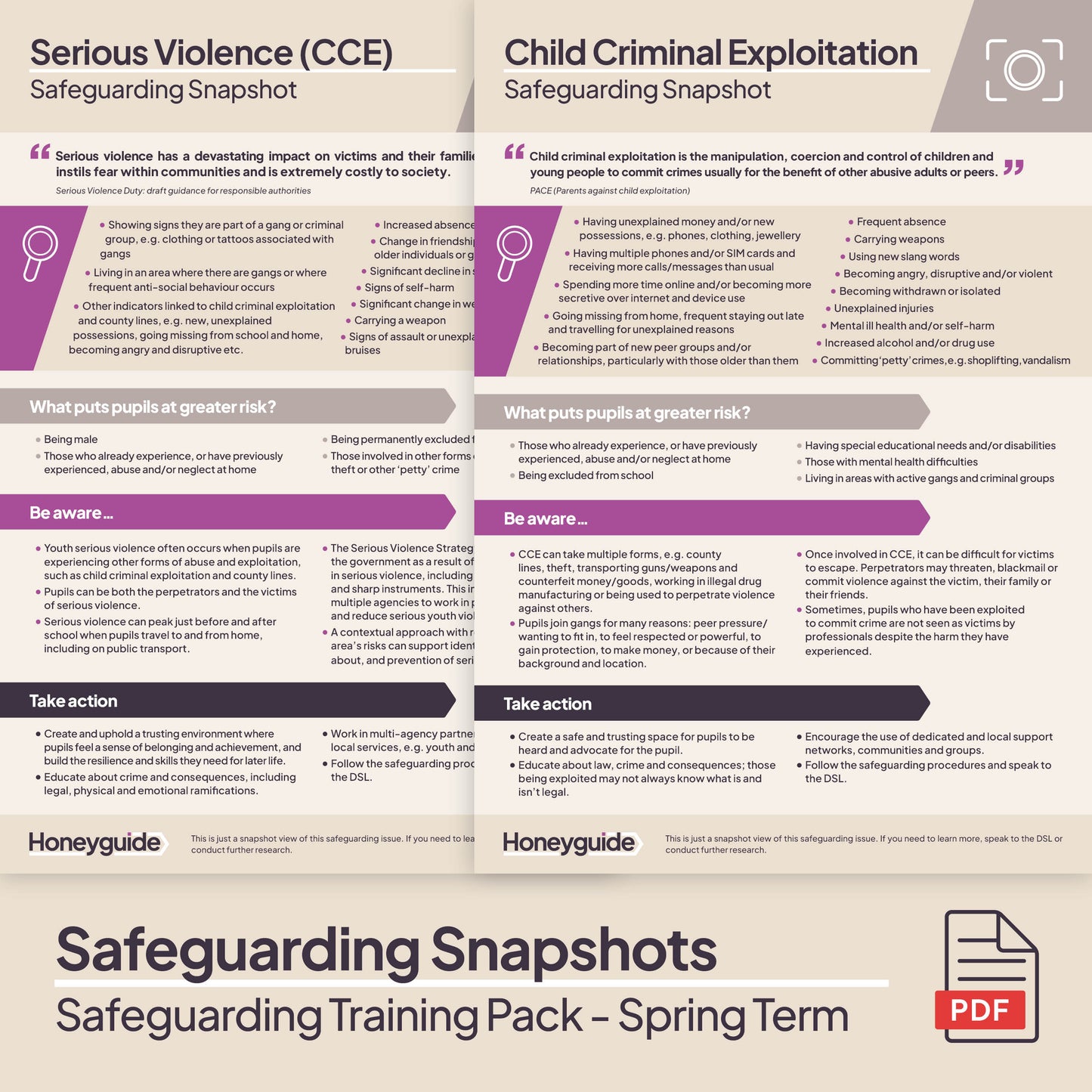
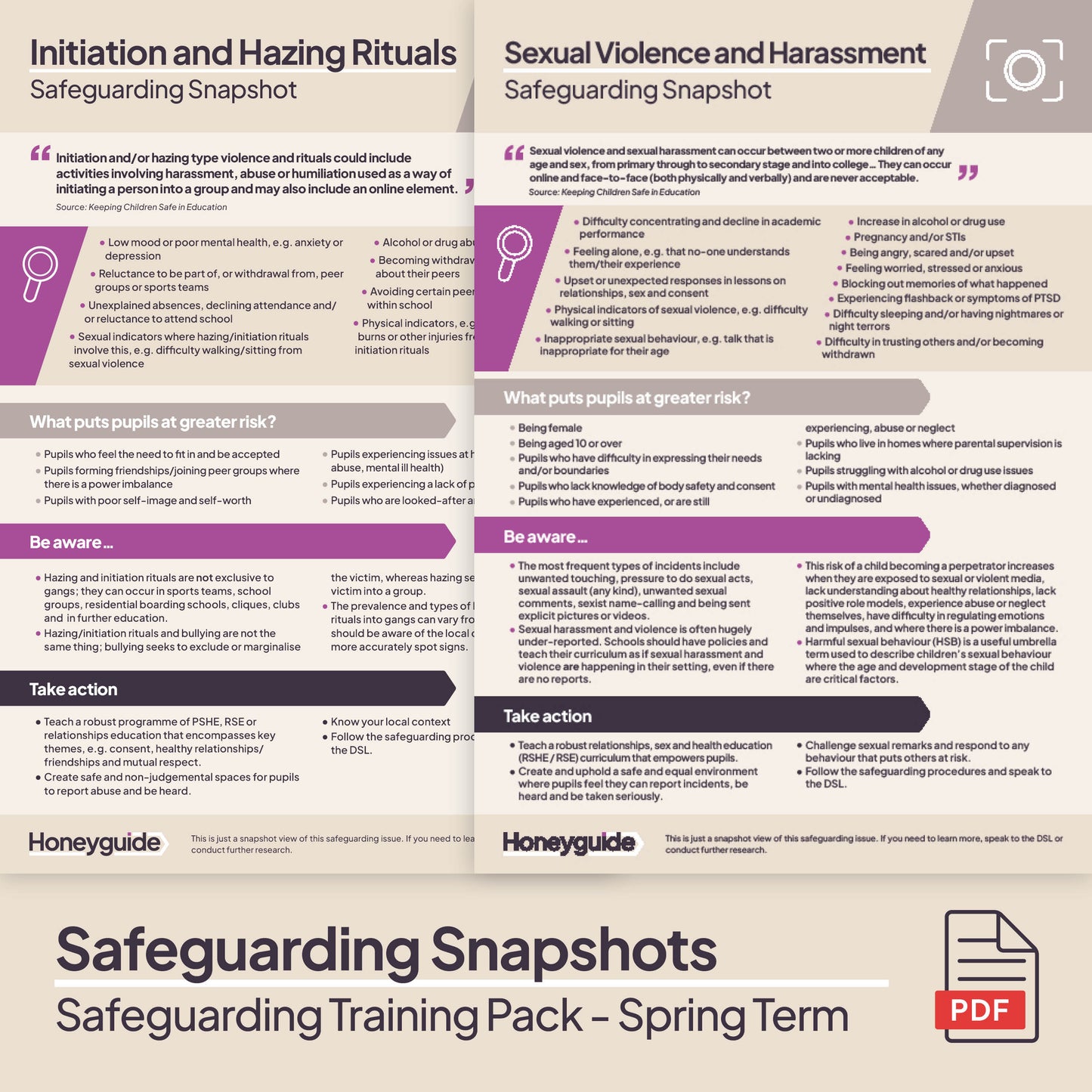
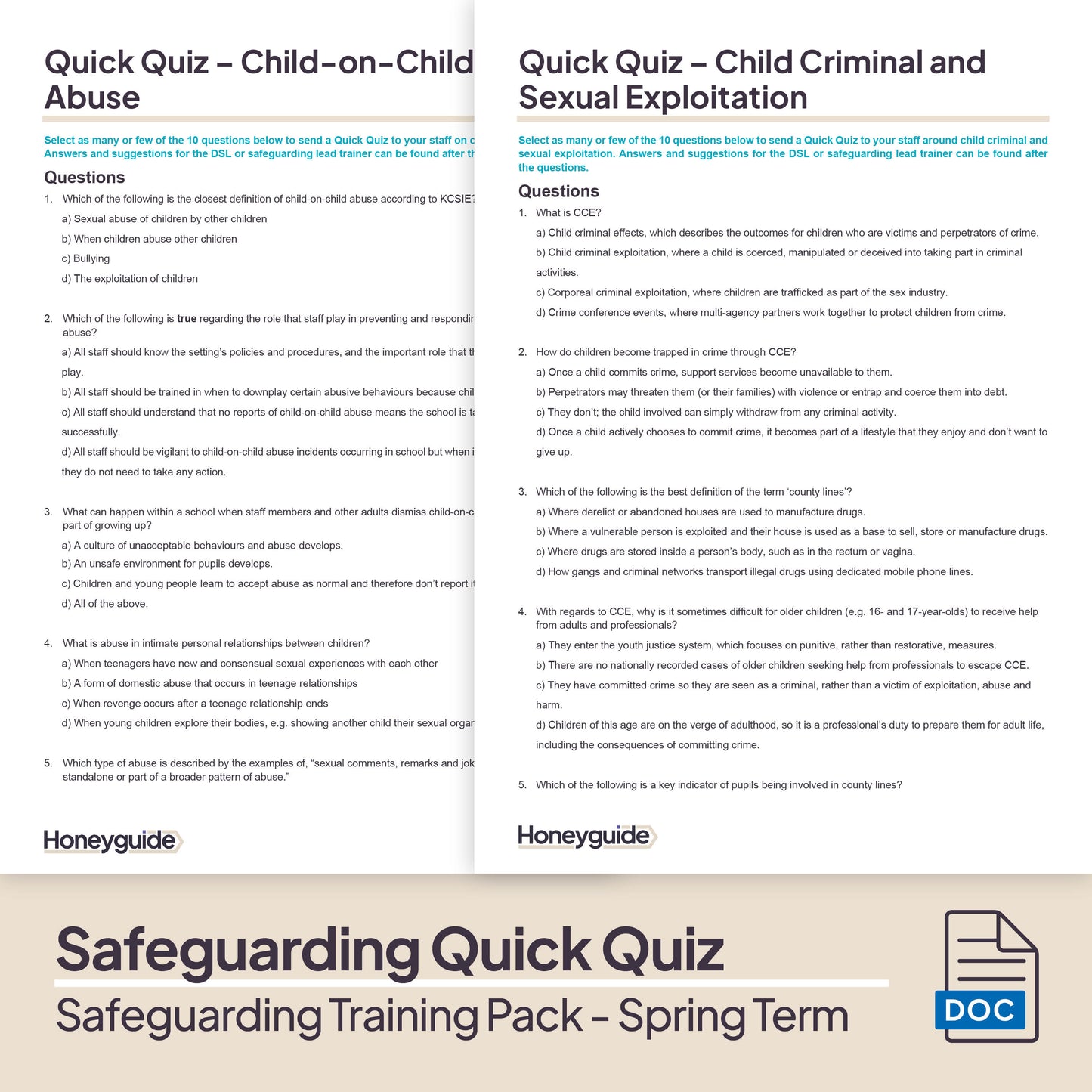
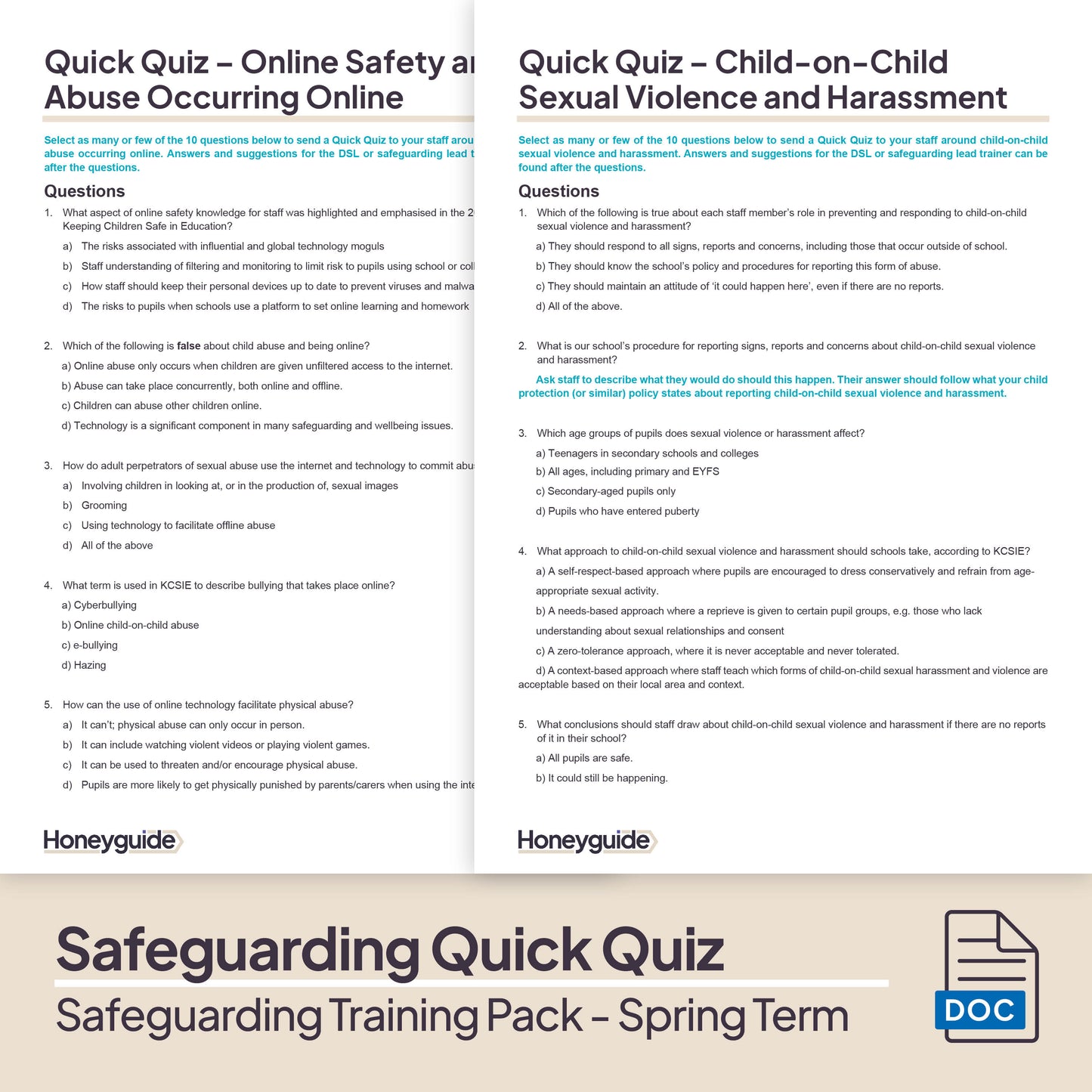
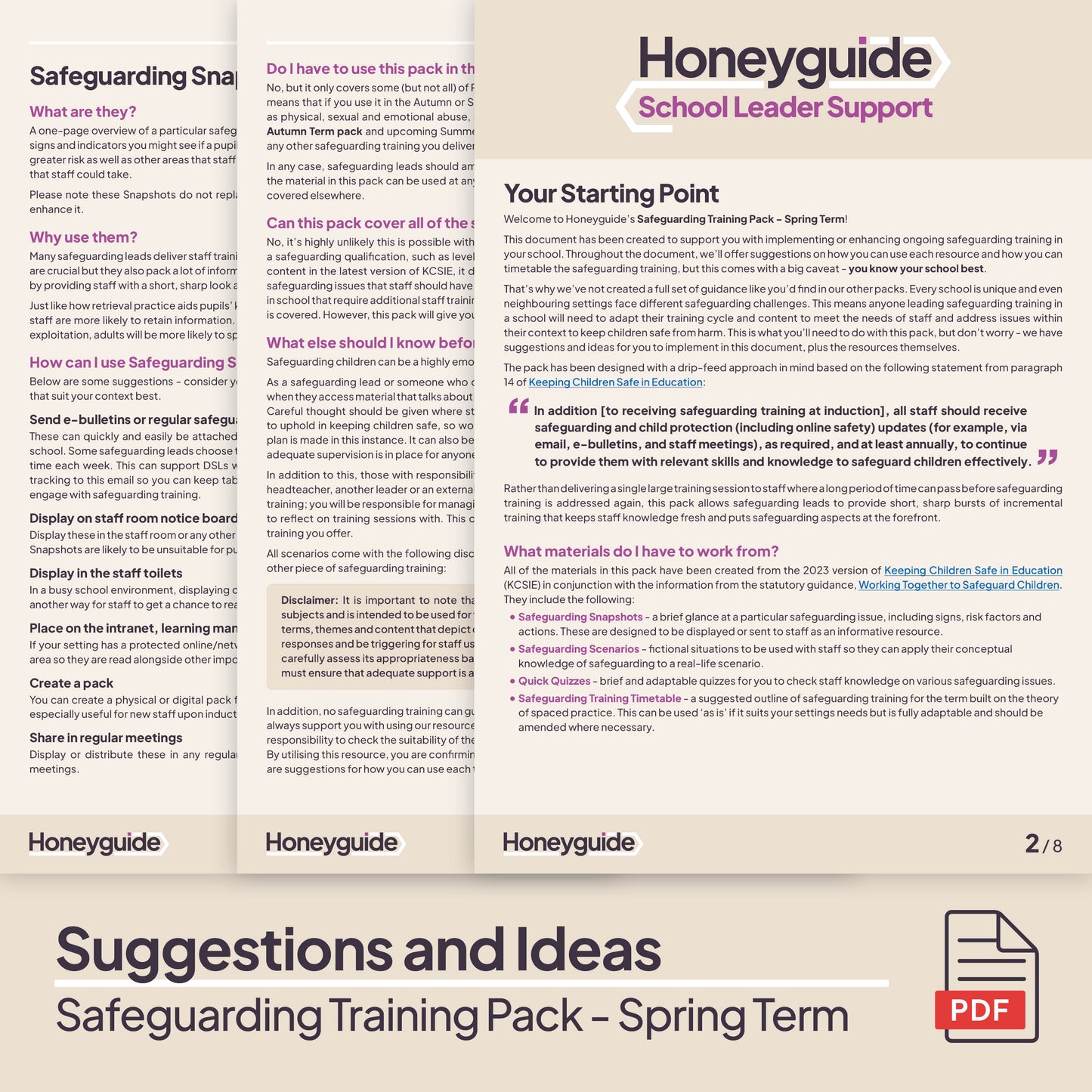
Collapsible content
What's included in this bundle?
This full safeguarding training pack for the Spring term contains the following resources:
- 12 x editable Safeguarding Scenarios, questions and answers for interactive and collaborative staff training.
- 12 x Safeguarding Snapshots to display within your staff spaces or send to them each week.
- 6 x Quick Quizzes containing 10 multiple-choice questions each - ideal to keep tabs on if staff safeguarding knowledge is secure.
- 1 x ready-made Safeguarding Training Timetable designed to incorporate the above resources into a training programme for the Spring term.
- 1x PDF document on suggestions for use, giving you ideas on how you can implement each aspect effectively.
The safeguarding training materials are designed for the Spring term and have been created from the most up-to-date version of the 2023 KCSIE. They work in conjunction with the training resources in the Safeguarding Training Pack - Autumn Term and the Safeguarding Training Pack - Summer Term to cover new child protection aspects, so it's perfect if you've already used (or intend to use) this pack. If you haven't, not to worry - you can still use this Spring pack to develop safeguarding training in your setting but we'd encourage you to think about how you cover all aspects of Keeping Children Safe in Education.
This pack's contents cover the following safeguarding issues:
- Child-on-Child Abuse
- Abuse in Intimate Personal Relationships
- Child-on-Child Sexual Violence
- Child-on-Child Sexual Harassment
- Youth-Produced Sexual Imagery (also known as Consensual and Non-Consensual Sharing of Nude and Semi-Nude Images and/or Videos / Sexting)
- Upskirting
- Initiation and Hazing Type Violence and Rituals
- Child Criminal Exploitation (CCE)
- County Lines
- Serious Violence
- Child Sexual Exploitation (CSE)
- Children Absent from Education and Children Missing Education (CME)
- Elective Home Education (EHE)
- Concerns about staff, including intimate care and dismissal of child-on-child abuse
- Further scenarios recapping physical abuse (fabricated illness) and emotional abuse
- Further Quick Quizzes covering physical, sexual and emotional abuse and neglect, abuse occurring online and working with others to safeguard children.
The safeguarding training pack has been carefully designed to weave the above safeguarding aspects together with the theory of spaced practice in mind. This means staff can revisit content across the term, ensuring that they deeply understand all of the topics covered in order to keep children safe.
Who will find this resource useful?
Designated safeguarding leads (DSLs), deputy safeguarding leads, trust safeguarding leads, safeguarding trainers or anyone else with responsibility for safeguarding training, such as a CPD co-ordinator, will find this pack invaluable. Headteachers and senior leaders can also use this pack to support their DSL and safeguarding team to deliver a robust safeguarding training offer to all staff and volunteers.
What questions does this pack have the answers to?
Paragraph 14 of Keeping Children Safe in Education states:
“In addition [to receiving safeguarding training at induction], all staff should receive safeguarding and child protection (including online safety) updates (for example, via email, e-bulletins, and staff meetings), as required, and at least annually, to continue to provide them with relevant skills and knowledge to safeguard children effectively.”
This is why we’ve designed such a comprehensive training pack. Rather than delivering a single large training session to staff at the start of term where a long period of time can pass before safeguarding training is addressed again, this pack allows safeguarding leads to provide short, sharp bursts of incremental training that keeps staff knowledge fresh and puts safeguarding aspects at the forefront.
For monitoring and quality assurance purposes, offering a drip-feed approach to safeguarding training is a great way to show that you’re constantly preparing staff to act if a safeguarding issue does arise, ensuring pupils are kept safe from harm.
What else can help me?
Thinking about auditing other areas of your safeguarding provision or further ways to train staff? These can help:
Can I view a sample of this resource?
Yes, you can few a sample version of the entire pack here: Safeguarding Training Pack - Spring Term Sample Preview.








